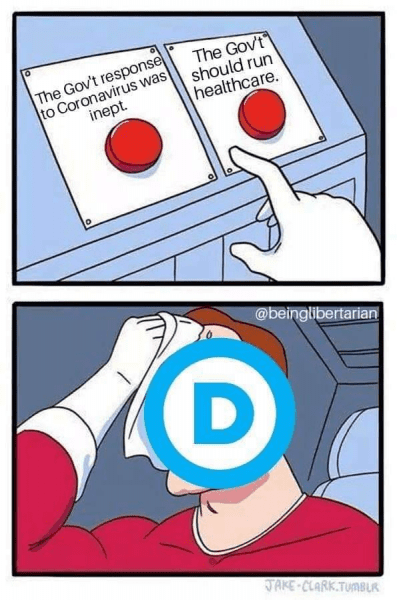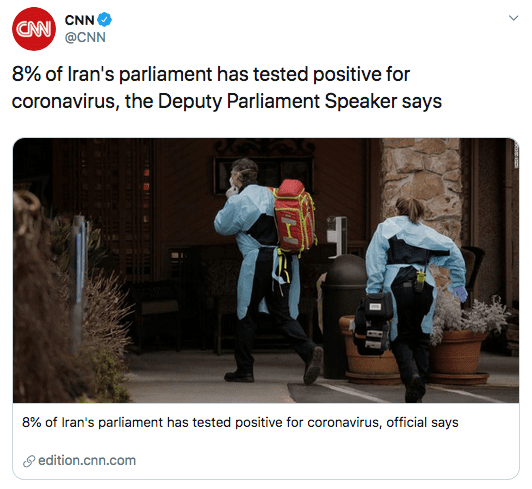CORONAVIRUS UPDATE: South Korea Reports 516 New Cases of Coronavirus, Brings Total to 5,328.
New Zealand records second coronavirus case in woman arriving from Italy.
Santa Clara advises seniors to avoid large gatherings as two new coronavirus cases confirmed.
N.H. coronavirus patient breaks isolation, potentially exposing others.
Coronavirus prompts Google to cancel its annual I/O developer conference.
DC Cancels March Comic Con Appearances Amid Coronavirus Concerns.
Japan Services Sector Activity Shrinks on Coronavirus Hit: PMI.
5 Things a Doctor Says You Should Buy to Prepare for Coronavirus.
Salem residents stock up on supplies as coronavirus cases grow.
Does your credit card travel insurance cover coronavirus cancellations?
Seattle: Mayor Durkan Issues Proclamation of Civil Emergency in Seattle Over Coronavirus.
Coronavirus fears prompt people to seek healthier alternatives to shaking hands.
U.S. coronavirus cases rise, three more die in Washington state as 1 million test kits promised.
Target Sees “Strong” February Sales, Monitoring Virus-Related Supply Chain Stress.
AT&T COO: Coronavirus has brought ‘some impacts that are starting to emerge’ on supply chain.
Coronavirus Impacts Supply Chain, Crucial Contingency Plans Needed.
UPDATE: A reader emails:
With respect to the dire predictions of experts on the Coronavirus, below, for perspective, is an article I had saved from The New York Times on the Ebola eruption in Africa in 2014-2015. The fact is that the dire warnings of the “experts” were wrong by a factor of over 50x. Yowza!
I send this along as it may be of interest to you. And, BTW, you and your team do a tip-top job in everything you touch.
Thanks! Here’s the article. Excerpt:
Experts are trying to understand how the disease, which has defied the ominous predictions of the world’s top infectious disease researchers, appears to be extinguishing itself with surprising swiftness. In September, the United States Centers for Disease Control and Prevention had projected that, by Jan. 20, the outbreak could reach 1.4 million cases in Liberia and Sierra Leone alone, but by that date only 21,797 were recorded in all three countries.
While many have emphasized the enormous assistance hauled into the region by the United States and international organizations, there is strong evidence, especially here in Monrovia, that the biggest change came from the precautions taken by residents themselves.
“Fundamentally, this is about the extent to which societies change their behaviors, how they change them, and the speed at which they change them,” said Dr. David Nabarro, the United Nations special envoy on Ebola, who made frequent trips to the hot zone at the height of the epidemic. “I believe for various reasons people in Liberia changed quickly and dramatically. I believe Sierra Leoneans changed quickly in some areas and less quickly in some areas.”
When Ebola struck the densely crowded neighborhoods of Monrovia over the summer, the first time a capital city had faced Ebola’s full onslaught, the impact was devastating. Hundreds of new cases appeared around the country every week, hospitals collapsed or overflowed with patients, and sick people lay along the road, sometimes dying before help could reach them.
Reeling from the explosion of infections in August, volunteer Ebola watchdog groups sprang up in many neighborhoods, typically overseen by local elders and led by educated youths, drawing from a long history of community organizing to survive war, poverty and government neglect.
With little or no outside help in the early months, the groups educated their communities about Ebola, a disease new to this part of Africa, and collected money to set up hand-washing stations at key spots. They kept records of the sick and the dead. Many also placed households under quarantine and restricted visits by outsiders. As the sick were turned away at the gates of treatment centers because of a lack of beds, people inside homes began protecting themselves better, covering their arms in plastic shopping bags as they cared for ailing relatives. The gear became known as Liberian P.P.E.’s, or personal protective equipment, a reference to the more impermeable suits worn by health workers.
By mid-October, new cases in Liberia had dropped precipitously, to dozens from hundreds per week. A few clinics run by Liberians and international charities had opened, but the drop took place a solid month before any of the treatment centers built by the American military had even begun accepting patients.
Let’s hope we see a similar fizzle for this coronavirus, which isn’t nearly as bad as Ebola, but still bad enough.
ANOTHER UPDATE: Seen on Facebook:



WaPo article paywalled, but excerpt here. “The global mortality rate — which includes more than 3,000 deaths — is many times higher than the ‘mortality rate’ of the flu, which is less than 1%. WHO director Tedros Adhanom Ghebreyesus said that is at least partly because COVID-19 is a new disease, and no one has built up an immunity to it. Still, Tedros reiterated the WHO’s belief that containment was still within reach.”
